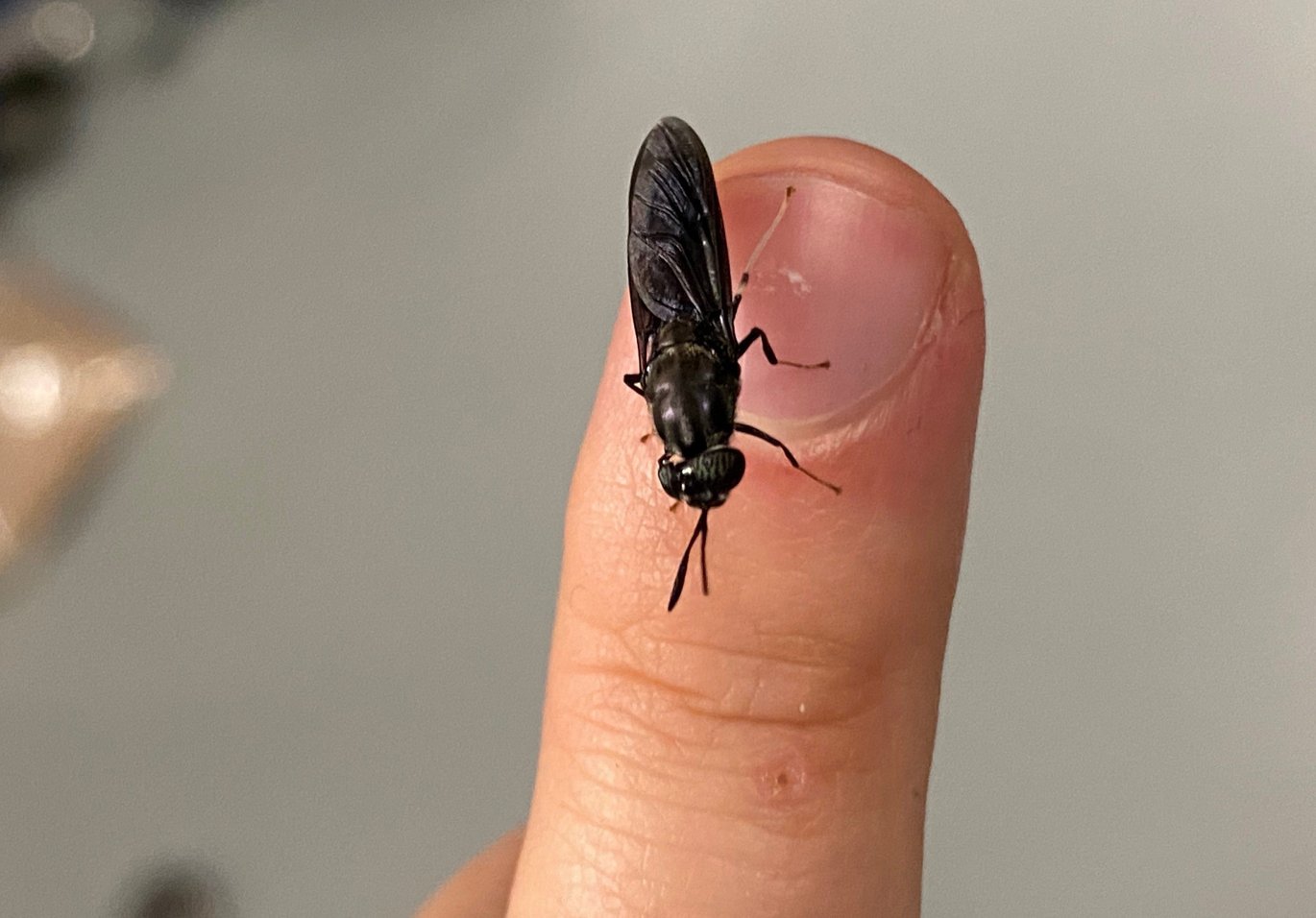Black soldier flies will contribute to green transition
Protein production from insects will be optimized with help from researchers at Aarhus University, Department of Animal Science and corporation partners. This will be achieved through the GUDP funded project EntoFeed, where the nutritional requirements of black soldier fly larvae will be investigated in order to maximize larvae production while reducing environmental impact.

In recent years, the interest in insect production as part of the green transition for a sustainable agriculture has been strongly increasing. Many insects can exploit biomass from residual products and thereby upgrade the value of side streams that would otherwise end in combustion, as biogas, or as fertilizer. Among other things, this is due to insects having a high feed utilization, meaning that the feed is efficiently incorporated into body at low excretion of unutilized nutrients. Present insect production is mainly aimed toward use in feed for fish, poultry and pigs and is going to replace less environmentally friendly sources of protein such as trash fish and soya beans.
Black soldier flies have proven to be particularly productive on a large range of substrates from residual products, and the interest in black soldier flies as an insect based protein source has increased exponentially. In Denmark, the first companies have established within recent years with a huge expected growth potential over the years to come. However, as soldier flies and other insects are recent additions to farmed animals, their production has not yet been optimised like in traditional farm animals that have been part of the production in generations. However, many techniques and approaches used to optimize traditional animal production can also be applied for optimizing insect production.
A new GUDP project will identify the optimal composition of nutrients
In a new research project funded by GUDP, researchers at Department of Animal Science at Aarhus University, Foulum, are going to work on optimising the diet for black solider flies so that the production is maximised at minimal feed use. By composing nutrients in the feed, so that they form a balanced diet that supports the requirements for maximal growth of the larvae, the feed use and thus production costs needed are expected to be reduced substantially. It is especially important to reduce the protein amounts in the feed, as protein is the most expensive macronutrient. Therefore, improved protein utilization will be an important element in reducing production costs. The work will first focus on determining the larval requirements for each of the three macronutrient groups; protein, carbohydrate and fat. Then the requirement for each of the essential amino acids will be determined. The purpose is to start the preparation of nutrition norms for larvae of black soldier flies so the highest possible production is achieved by feeding a balanced diet. A better understanding of the nutritional requirements of black soldier fly larvae can furthermore make it easier for producers to determine the value of a residual product as feed for the larvae, and to optimize the composition of available residual products.
More work ahead
On a longer term, the work will also include breeding using methods to improve the genetic inheritance of lines adapted to different residual substrates. Over time, more species may be investigated, as the adaptation levels between species and substrates improve. The researchers therefore expect there is foundation for more innovative projects on black soldier flies and other insect species in the coming years.
| Further information | |
We do our best to make sure that all our articles live up to University Denmark’s principles of good research communication. Therefore, the article is supplied with the following information: | |
| Type of study | Experiments |
| Funding | The project is funded with DKK 3,830,708 by GUDP under the Danish Agricultural Agency. |
| Partners | Aarhus University - Department of Animal Science, EntoMass Aps, Enorm Biofactory A/S, Insectum Aps, Hedegaard A/S og Vilomix A/S. |
| Contact | Lektor Jan Værum Nørgaard, Department of Animal Science, Aarhus University, E-mail: janvnoergaard@anis.au.dk |
